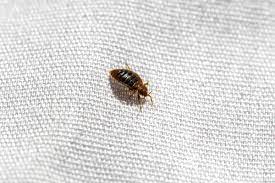Bed bugs are something that many people worry about and they may worry even more when their children have been bitten. In this article, you will find out some effective tips on what to do if your child has bed bug bites.

Introduction
There have been many inquiries lately about how to deal with bed bug bites on babies. The good news is that bed bugs are not as common as people think and they are not known to spread any serious diseases. However, bed bug bites can still cause discomfort and can be quite itchy. If you want to know how bed bug control will increase your good sleep hours.
There are a few things you can do to help reduce the chances of getting bitten and to treat the bites if they do occur. Here are some tips:
– Keep your home clean and free of clutter: Bed bugs like to hide in cracks and crevices, so keeping your home clean will help you find them more easily.
– Check your beds regularly: Bed bugs love to lay their eggs in warm, moist areas. So make sure to check your beds for signs of infestation every week, especially around the edges and corners where they are often most difficult to see.
– Use a bed bug spray: Many people find that using a bed bug spray makes them feel more secure against the bugs and less likely to get bitten. Just be sure to read the instructions first and use caution when spraying around children or pets.
What Are Bed Bugs?
Bed bugs are small, brownish insects that feed on human blood. They can be found in most homes, but are most common in areas where people sleep and use the bathroom. They can also be carried into homes on clothing, furniture, or other objects.
If you find bed bug bites on your baby, it’s important to identify the source of the bite and take steps to prevent future bites.
What Are The Signs Of A Bed Bug Bite?
Most people don’t experience any signs or symptoms of a bed bug bite. However, if you do have a bite, there may be:
– Redness and itching
– Swelling
– Pustules (small blisters)
Symptoms of Bed Bug Infestation
Bed bug bites can be itchy and may leave behind a red, itchy rash. However, not all bed bug bites are indicative of an infestation. If you are unsure whether you have bed bugs or not, see a doctor for a proper diagnosis. Here are some tips to help you manage and treat bed bug bites:
– Clean the area where the bite occurred as soon as possible with soap and water. This will remove any eggs or larvae that may have been present.
– Apply an over-the-counter topical cream like cortisone cream or calamine lotion to the affected area. These creams will help relieve the itchiness and inflammation.
– Place a bandaid or another type of adhesive over the bite to keep the area protected and stop the itch from spreading.
– Visit a doctor if the bite does not improve within 24 hours or if it becomes infected. Bed bug bites can become seriously infected, and prompt treatment is needed to prevent further damage to the skin.
How to Deal with Bed Bug Bites on Your Baby
Bed bug bites are a common occurrence in the summertime. Here are some tips on how to deal with them:
-Clean the bite area with soap and water. Apply an antibiotic ointment if needed.
-Cover the bite area with a bandaid or adhesive bandage.
-If the bite is on an extremity, such as an arm or leg, keep the area warm and elevated using a heating pad, blanket, or hot water bottle. Hire to best carpet cleaning company for bed bugs control services.
